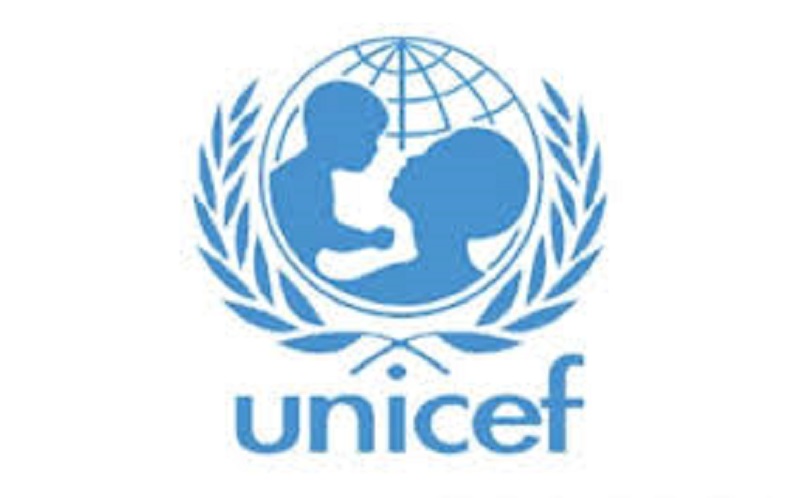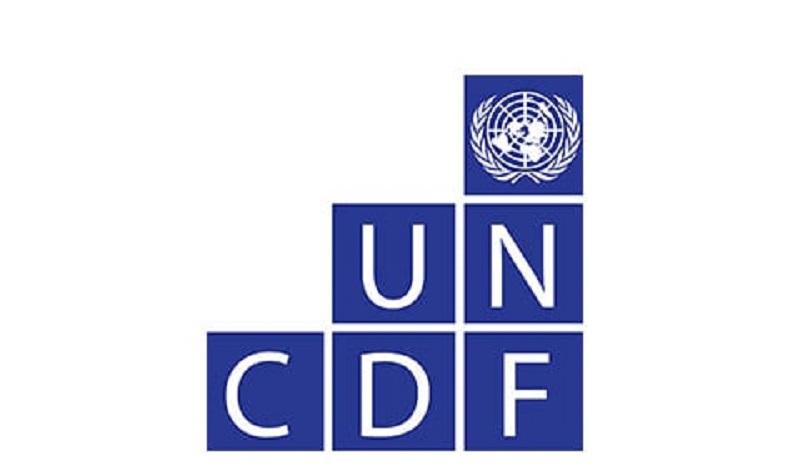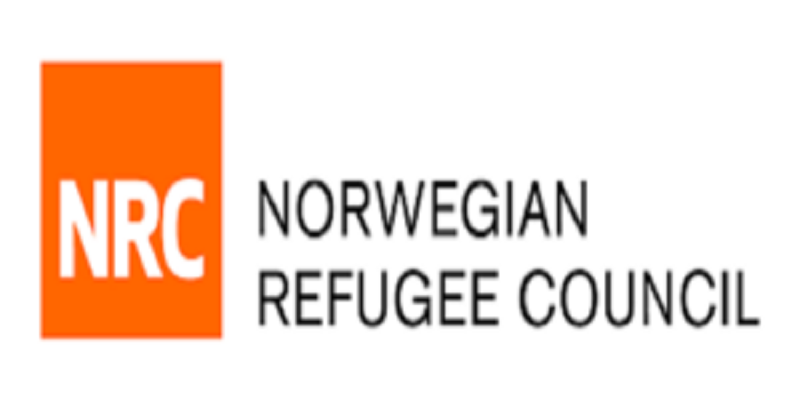L’UNICEF travaille dans 190 pays et territoires pour protéger les droits de chaque enfant. Depuis 70 ans, l’UNICEF s’efforce d’améliorer la vie des enfants et de leurs familles. La défense des droits des enfants tout au long de leur vie nécessite une présence mondiale, visant à produire des résultats et à comprendre leurs effets. L’UNICEF estime que tous les enfants ont le droit de survivre, de s’épanouir et de réaliser leur potentiel – au profit d’un monde meilleur. Pour en savoir plus sur l’UNICEF, visitez le site www.unicef.org.
Chief Health & Nutrition P5 FT – Bamako, Mali #14118
Apply now Job no: 547331
Contract type: Fixed Term Appointment
Level: P-5
Location: Mali
Categories: Programme Management
For Every Child, hope
UNICEF works in 190 countries and territories to protect the rights of every child. UNICEF has spent 70 years working to improve the lives of children and their families. Defending children’s rights throughout their lives requires a global presence, aiming to produce results and understand their effects. UNICEF believes all children have a right to survive, thrive and fulfill their potential – to the benefit of a better world. To learn more about UNICEF, visit www.unicef.org.
The fundamental mission of UNICEF is to promote the rights of every child, everywhere, in everything the organization does — in Programmes, in advocacy and in operations. The equity strategy, emphasizing the most disadvantaged and excluded children and families, translates this commitment to children’s rights into action. For UNICEF, equity means that all children have an opportunity to survive, develop and reach their full potential, without discrimination, bias or favoritism. To the degree that any child has an unequal chance in life — in its social, political, economic, civic and cultural dimensions — her or his rights are violated. There is growing evidence that investing in the health, education and protection of a society’s most disadvantaged citizens — addressing inequity — not only will give all children the opportunity to fulfill their potential but also will lead to sustained growth and stability of countries. Therefore the focus on equity is so vital. It accelerates progress towards realizing the human rights of all children, which is the universal mandate of UNICEF, as outlined by the Convention on the Rights of the Child, while also supporting the equitable development of nations.
Mali remains one of the poorest countries in the world and 56 per cent of children still suffer from at least three deprivations. Despite some progress, significant economic, geographic and gender-based inequities remain. Limited budget allocations to social sectors and insufficient transfer of resources to decentralized authorities further undermine the social inclusion agenda. Since 2012, Mali has faced numerous multidimensional crises, including armed conflicts in the north and centre of the country, which have been exacerbated by frequent natural disasters such as floods and drought. 3.9 million people, of whom half are children, are affected. Mali CO has developed a new country Programme (2020 – 2024), and is implementing a life cycle approach with highly integrated results and interventions at all levels.
How can you make a difference?
Purpose for the job: The Chief Health & Nutrition P5, # 14118 reports to the Deputy Representative, P5 for guidance and general supervision. The Chief, Health & Nutrition, is responsible for the overall management and administration in the development, planning, implementation, monitoring and evaluation of the Health & Nutrition programme in the context of child survival and development within the country programme. Accountable for effective technical leadership, management guidance and programme support to facilitate the application and adaptation of UNICEF policies and strategies to achieve programme goals and expansion of UNICEF assisted Health & Nutrition interventions, including the attainment of the Millennium Development Goals.
As Chief of Section, directs, leads, manages, develops and enables a competent team of professional and support staff to achieve the strategic goals and objectives of the Health & Nutrition programme, with a view to integrating gender equality across all aspects of the country programme.
Contributes to create synergy partnerships which reinforce other organizations – including other UN Agencies – MDGs strategic directions in areas where UNICEF has primary responsibility or comparative advantage such as interrelated areas of maternal, new-born, and child health and nutrition.
Works closely, in Humanitarian Action, with the Nutrition and Health clusters within the inter-agency standing committee (IASC).
How can you make a difference?
KEY ACCOUNTABILITIES and DUTIES & TASKS
Within the delegated authority and under the given organizational set-up, the incumbent may be assigned the primary, shared, or contributory accountabilities for all or part of the following areas of major duties and key end-results.
1. Timely and quality sectoral analysis, input, support and coordination contribute to the Situation Analysis, its periodic update, and all programme documents to formulate effective Health & Nutrition goals, strategy, and project planning and development.
Leads, guides and coordinates to ensure the timely preparation and completion of the relevant components (e.g., Health, Nutrition, WASH, HIV/AIDS) of the Situational Analysis and its periodic update through accurate monitoring and analysis, and timely preparation and finalization of sectoral input. Ensures effective project, sectoral or inter-sectoral planning, development and management.
Establishes sectoral programme goals, objectives, and strategies. Supervises preparation of the sectoral inputs to the Country Programme Document and related documents, ensuring coherence of the sectoral programme with National priorities and policies and with United Nations Development Assistance Framework (UNDAF).
2. Integrated Health & Nutrition strategies, methodologies and innovative approaches are developed and implemented based on results-based approach and Human Rights framework by broad participation and collaboration with internal and external partnership.
As part of the senior management team, ensures the integration of the sectoral programme with other UNICEF sectors in all stages of the programming process.
Maintains close working relationships with other UNICEF sectors, particularly Education, Protection, Social Policy, PM&E, HIV/AIDS, WASH, and programme communication to ensure integration of the Health & Nutrition programme with other sectors in line with the CPD.
Provides leadership, guidance and direction for the formulation and development of Health & Nutrition goals, strategies and approaches for the UNICEF plan of cooperation.
Participates with UNICEF, government, donors and other partners in the development of integrated strategies, methodologies and identification of innovative approaches for improving programme delivery, with emphasis on advocacy, community participation and social mobilization based on the Human Rights framework and cross sector approach to Programming and Community Capacity Development.
Brings coherence, synergy and added value to sectoral or project management processes using a results-based management approach to planning and design, implementation, monitoring and evaluation.
Monitors latest Health & Nutrition developments at the international, regional and national levels; identifies/develops new methodologies and approaches for managing and improving programme effectiveness and efficiency of delivery.
Reviews and evaluates the technical, institutional and financial feasibility and constraints of programmes/ projects in coordination and collaboration with government and other partners.
Establishes active and participatory partnerships with key stakeholders and works with them at various stages of Health & Nutrition programme design and implementation.
3. Technical support is provided to government and non-government organizations at all stages of the programme cooperation, including capacity building of government personnel and beneficiaries.
Provides guidance and support to government and non-government organizations at the national and provincial levels in the planning, development and implementation stages of the programmes/projects. Plans, organizes and oversees training and orientation activities for government personnel and beneficiaries for the purpose of institutional capacity building and expansion of coverage of services.
4. Monitoring and evaluation of programme performance is systematically undertaken for adjustment, acceleration and improvement of program delivery.
In collaboration with other colleagues, establishes effective information and reporting systems to monitor and evaluate the impact of the Health & Nutrition programme and achievement of targeted goals.
Monitor and evaluate project implementation in the field. Participates in major review and planning meetings with government partners and key stakeholders on the country programme to assess and evaluate programme effectiveness, identifying problems and adopting remedial measures to accelerate/improve programme delivery.
5. Work plan and objectives are effectively established, performance is managed, and planned results are timely delivered through exercise of strong programme management leadership.
As head of a large section, Chief Health & Nutrition takes primary responsibility for the development of the results-based sectoral work plan as well as for managerial oversight and implementation of sectoral project activity, consistent with the defined project strategies and approaches.
Ensures that objectives and targets are timely met and achieved, by providing advice, guidance oversight, coordination, and support to professional and support staff.
6. The capacities of Country Office staff are strengthened through effective capacity building programme in the development, implementation and management of Health & Nutrition programme.
Guides and coordinates a staff training/development programme with Regional and HQ Advisers to upgrade the capacity of UNICEF Country Office staff enabling them to progressively engage in and lead in the programme development, implementation and management of the Health & Nutrition programme. Oversees relevant orientation, workshop, training and staff learning/development activities, including relying on technical partnership with collaborating agencies to provide state –of the –art -technical information to staff.
7. UNICEF and Government accountability is ensured for supply and non-supply assistance and disbursement of programme funds for the sector.
Coordinates with Operations and Supply staff on supply and non-supply assistance activities ensuring UNICEF and Government and implanting partners accountability. Approves disbursements of funds, ensuring those activities are within established plans of action and programme budget allotments; and to orientate and train Government and UNICEF implementing partners in UNICEF supply and non-supply policies and procedures. Monitors the overall allocation and disbursement of programme funds, making sure that funds are properly coordinated, monitored and liquidated. Takes appropriate actions to optimize use of programme funds.
Ensures programme efficiency and delivery through a rigorous and transparent approach to programme planning, monitoring and evaluation. Submits financial status reports to management in compliance with the regulations and guidelines.
8. Effective partnership and collaboration are achieved and maintained in the advancement of advocacy, technical cooperation, programme coordination, information sharing and knowledge networking.
Exercises leadership for technical cooperation, programme coordination and advocacy in the areas of Health & Nutrition, ensuring knowledge networking and experience sharing with other programmes for identification of new strategies and approaches to accelerate delivery of programme results and promote effective advocacy.
Participates in establishing effective monitoring, knowledge database/network and reporting systems to ensure the availability of current and accurate programme information/data, and contributes to the development of communication materials and strategies to: support advocacy and community participation; and to widen partnership with all stakeholder.
Develops partnership and collaboration with external counterparts, including those of the UN and national partners. Ensures exchange of knowledge, information, experience and lessons learned.
9. The most relevant and strategic information is provided to support the Health & Nutrition Programme by the effective implementation of integrated programme monitoring system.
In collaboration with monitoring and evaluation and program communication colleagues, conducts accurate and timely monitoring and data collection, and supports an integrated programme monitoring system, in consultation with all relevant stakeholders.
Provides technical support to ensure that a set of programme performance indicators is identified and adjusted as necessary. Coordinates with partners to ensure that monitoring systems are properly designed, and that data collection and analysis from field visits are coordinated and standardised across programmes to feed into to programme performance monitoring.
Participates in major evaluation exercises, programme mid-term review, annual sector review and preview meetings with Government counterparts and all other relevant partners. Analyses and evaluates data to ensure achievement of objectives and recommends corrective measures as appropriate.
Drawing on monitoring and analysis of key program performance and management indicators, provides expert input to management reports, including relevant sections of the annual reports. Provides technical advice to programme staff, government counterparts and other partners on planning and management of integrated monitoring and evaluation.
10. All required programme reports are timely prepared in compliance with the established guidelines and procedures.
Oversees and ensures the timely preparation of annual sector status reports in compliance with the established guidelines and procedures. Participates in the preparation of all programme reports for management, Board, donors, budget reviews, programme analysis, annual reports, and provides guidance and assistance in programme related reporting.
11. Emergency preparedness is maintained, and in emergencies, emergency responses with effective coordination are provided.
Collaborates in forming emergency preparedness plan relevant to Health & Nutrition. In case of emergency, participates in monitoring and assessing the nature and extent of the emergency in the assigned area. Coordinates and provides assistance to the Country Office in identifying where support is required in terms of immediate response as well as long-term strategy and plan.
12. Other assigned duties and responsibilities are effectively accomplished.
Assumes any other duties and responsibilities assigned as appropriate to the purpose of this post, and delivers the results as required.
To qualify as a champion for every child you will have…
- Advanced university degree in Public Health and Nutrition (preferably with specialized training in health planning, health and nutrition education, health care system management, HIV/AIDS prevention, or epidemiology), Child Development, Social Policy, Social Development, Community Development, or other relevant disciplines.
- Ten years of professional work experience at the national and international levels in planning, programming, implementation monitoring and evaluation of health and nutrition programmes including those relevant to child survival & development. Professional work experience in a managerial position, or a technical expert position in health, nutrition, and child survival & health care.
- Experience working in developing country work experience & Background/familiarity with Emergency.
- Fluency in French and English is required
- Knowledge of the local language of the duty station is highly desirable
Skills:
- Nurtures, Leads and Manages People (2)
- Demonstrates Self Awareness and Ethical Awareness (2)
- Works Collaboratively with others (2)
- Builds and Maintains Partnerships (2)
- Innovates and Embraces Change (2)
- Thinks and Acts Strategically (2)
- Drive to achieve impactful results (2)
- Manages ambiguity and complexity (2)
For every Child, you demonstrate…
UNICEF’s Core Values attributes: Care; Respect; Integrity; Trust; Accountability
UNICEF’s core competencies in Communication, Working with People and Drive for Results.
The functional competencies required for this post are…
- Leading and Supervising [III] •Formulating Strategies and Concepts [III]
- Analyzing [III] •Relating and Networking [III]
- Deciding and Initiating Action [III] •Persuading and Influencing [II]
View our competency framework at
http://www.unicef.org/about/employ/files/UNICEF_Competencies.pdf
UNICEF is committed to diversity and inclusion within its workforce, and encourages all candidates, irrespective of gender, nationality, religious and ethnic backgrounds, including persons living with disabilities, to apply to become a part of the organization.
UNICEF has a zero-tolerance policy on conduct that is incompatible with the aims and objectives of the United Nations and UNICEF, including sexual exploitation and abuse, sexual harassment, abuse of authority and discrimination. UNICEF also adheres to strict child safeguarding principles. All selected candidates will, therefore, undergo rigorous reference and background checks, and will be expected to adhere to these standards and principles.
Remarks:
Only shortlisted candidates will be contacted and advance to the next stage of the selection process.





